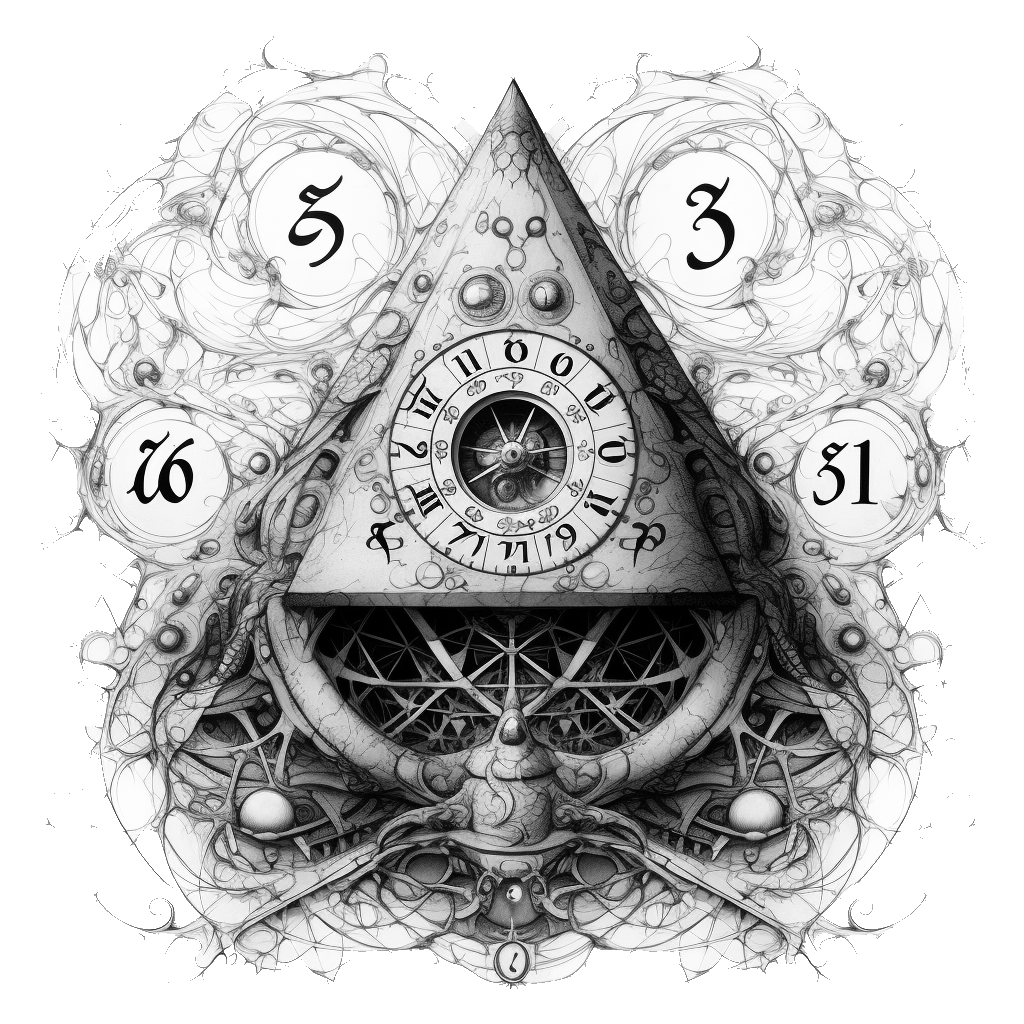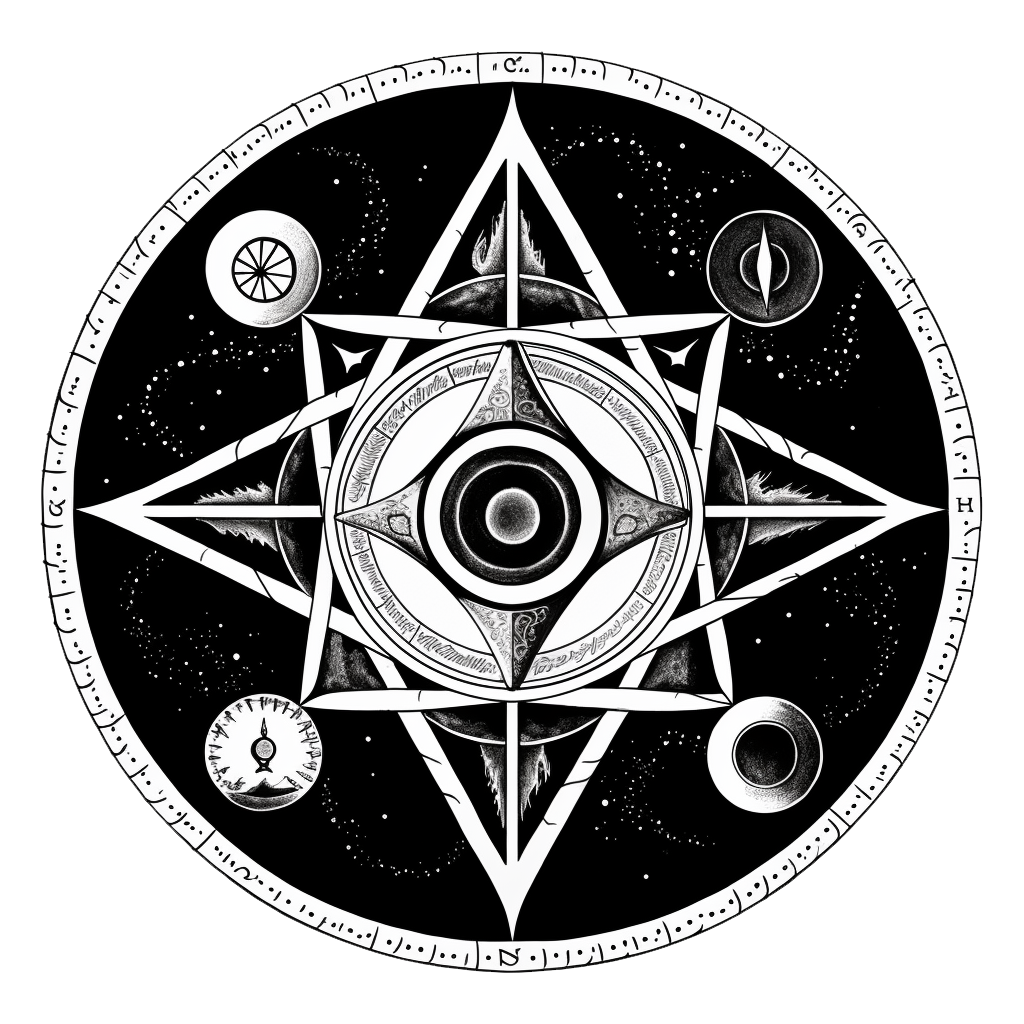Awareness of motion in space suggests the existence of events that occur, more or less, along an arc moving from one moment to the next. This dimension of reality is referred to as time. Within the evocation of events in a game setting, Augurs account for the passing of time in a variety of ways. To envision infinite possible realities, one must also remain flexible to the numerous ways time might express itself through the perceptions of character awareness. Some moments seem to last forever, while other stretches of time fleet by with little notice.

Within the compendium of a game setting, Augurs approximate the various perceptions of the passing of time through four units, from small to large in scope. This framework of perceivable time allows actions to be focused acutely from moment to moment, or be drawn out over larger periods. These units can be translated into whatever framework for measurement resonates most directly for the Augur. The example in the following chart focuses on minutes and hours.
| Unit | Description | Approximate Duration |
| Turns | Immediate actions, conflicts, in-the-moment decisions | Up to 1 minute |
| Rounds | Contemplative actions or groups of actions in a party | Up to 10 minutes |
| Cycles | Regular spans, travel increments, and times of rest | Up to 6 hours |
| Days | From dawn to dawn, or sunset to sunset, calendar time | Up to 24 hours |
The unit of days as shown here presumes a full collection of solar cycles from one dawn to the next. This unit will function for most settings central to earth or similar planetary bodies. However, the Augur may choose to restructure this unit based on the time needs central to their own setting.
These four units as a framework of time will be important to articulate within a setting for both the players and the narrator. As explored in later sections, units of time become a useful metric for tracking aspects of a character’s state of being, their pace, rest, recovery, healing, and the effects of various complex actions. Through a stable sense of time, Augurs ensure the realization of a setting will be nuanced and memorable.
Staging
In addition to the units of perceived time specific to the game setting and game play scenarios, the narrator must navigate a game session’s staging. Also called session time, staging is the facilitation of play time among the players based on the collective and character locations within the setting. The APC System calls for two modes of staging.
The first is open play, where the collective has the freedom to move about the setting and the scenario can unfold in a series of rounds. In open play, players typically share in-the-moment dialogue, banter, and take turns in no specific order to explore their surroundings, exchange ideas, and immerse in the scenario. Extended conversations among the collective and with other non-player characters who inhabit the environment are common in open play. Open play offers the most opportunity for players to evoke their character motivations and obstacles.
The second mode of stating is focused play, also called turn-based play, where a character’s movement is carefully tracked and each player takes a few moments to describe their character’s immediate actions that will last for one turn. The narrator may call for focused play whenever a scenario depends on tracking the circumstances of one second to the next. Typically the narrator will move the players into focused play at the start of a conflict encounter, as explored in the later section.
The narrator will navigate staging for a game session with the setting in mind, but also with the experiences of the players at the forefront. Effective and evocative scenarios come from careful staging, never spending too long in either mode of play, and always facilitating space for players to explore and immerse into the scenario with their character in mind. Players, too, should work with one another in the collective to facilitate staging that builds space for each character and makes sense for the scenario. If a player takes too much time contemplating a character’s actions, the APC System encourages the narrator to interject and cite the flow of time to adhere to the reality of the scenario.
A final note about staging explores the concept of campaign time. The passage of sessions in a campaign may encompass only days or weeks in the lives of the collective, while spanning the course of years for the players of the campaign. Similarly, the close of a story arc for the collective may inspire a rapid progression of several years of time for the characters, while the players only experience a week gap from one session to the next. Time only holds the illusion of steadfastness, and the path encourages players and the narrator to honor the emerging story, finding meaningful moments to draw the story to a close to serve the collective in exploring new adventures within an accessible span of their own time.
